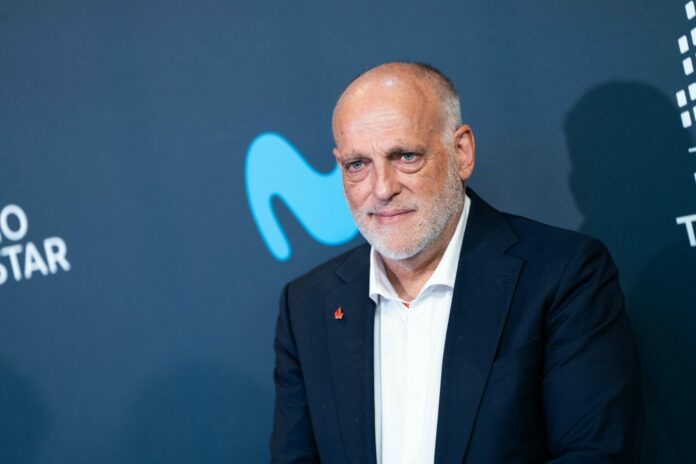MADRID (SPAIN) (ITALPRESS) – In the end, LaLiga was forced to backtrack: the “Miami plan” is officially off the table. Last night, the Spanish league had to acknowledge too much opposition, announcing that the Villarreal vs. Barcelona match will no longer take place on December 20 at Miami’s Hard Rock Stadium. It would have been the first-ever LaLiga match played outside Spain. The league’s U-turn was mainly driven by protests from players and clubs alike.
The Spanish players’ union, AFE, repeatedly criticized the lack of transparency in a decision made without properly consulting players, and which allegedly violated the collective bargaining agreement. Although UEFA had reluctantly given its approval, the backlash intensified—particularly because LaLiga and the Spanish Football Federation ignored AFE’s request for a meeting.
Things escalated further on October 13, when LaLiga president Javier Tebas questioned the union’s stance by stating, “I’m not so sure AFE really wants to stop this project.” With no date set for a meeting between the parties, tensions boiled over, culminating in a protest during last weekend’s matches, where players paused play for the first 10–15 seconds.
But the Miami plan was also undermined by other obstacles. Both CONCACAF and the U.S. Soccer Federation were ready to oppose the match, having not been consulted. Real Madrid led the charge among disgruntled clubs, filing a formal complaint with Spain’s Higher Sports Council, arguing that holding Villarreal-Barça in the U.S. would compromise the fairness of the competition.
There were also political pressures: Spain’s Minister of Sport, Pilar Alegría, stated her preference that domestic competitions be played within Spain. With so many forces aligned against it, the American dream collapsed—much to the dismay of Tebas, who took to social media with a post titled “A lost opportunity for Spanish football.”
Tebas blamed “the institutions that govern European football,” accusing them of “destroying national leagues year after year—the true engine of the football industry in Europe.” He also took a thinly veiled swipe at Real Madrid, criticizing those who “appeal to the integrity of the competition” while “undermining that same integrity by pressuring referees and officials, crafting misleading narratives, or using political and media pressure as a sporting weapon.”
“Spanish football must look to the future with ambition, not fear,” Tebas concluded. He also had to reckon with the pullback of Relevent Sports, the U.S.-based promoter of the Miami event, which notified LaLiga of the “need to postpone the match.”
“Given the current uncertainty in Spain, there is not enough time to properly organize an event of this magnitude,” read a statement published by The Athletic. “It would also be irresponsible to begin selling tickets without official confirmation.”
It’s a painful defeat for LaLiga, as the project was seen as “a historic and unprecedented opportunity to internationalize Spanish football.” The two clubs involved also expressed disappointment. Villarreal coach Marcelino called the timing of LaLiga’s backtrack—announced while the team was playing Manchester City in the Champions League—“disrespectful.” Barcelona, meanwhile, lamented “the missed opportunity to promote the competition’s image in a strategic market with strong growth potential and revenue generation to benefit all clubs.”
– Photo IPA Agency –
(ITALPRESS)
















